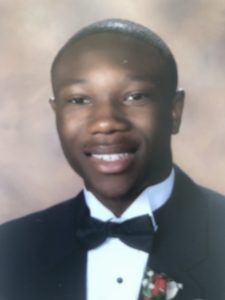Do you have a student who needs to make significant gains on the ACT or SAT? Are you worried that the test could prevent your student from attending the college of his or her dreams?
Ben is a student Miss Claire worked with at a non-profit that gives educational opportunities to lower-income and minority students to help them reach their educational dreams. She ran an ACT program there for five years.
When Miss Claire started ACT prep with Ben, he was at a Composite of 18 on the test, and he was really discouraged that the ACT was what was going to prevent him from reaching his dream of the U.S. Naval Academy. (18 on ACT is equivalent to 970 on SAT.)
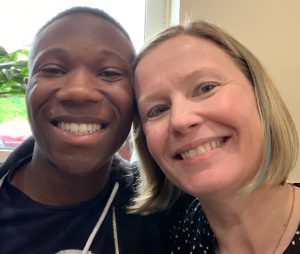
For high school graduation, Miss Claire gave Ben the gift of wisdom: she contacted three gentlemen she knew who had graduated from U.S. military academies, and asked each to write him a letter telling Ben how to survive his first grueling year at the Naval Academy. Each of these exceptional career military officers not only wrote Ben an amazing letter, he included his contact information.

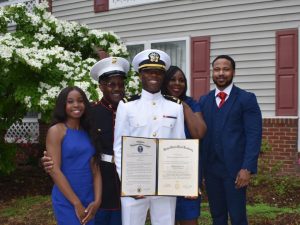
During Ben’s time at the U.S. Naval Academy, he distinguished himself as a leader in many ways, including being elected Commodore of the Yard Patrol Squadron by his peers for his final year. In May, 2022, Ben received the Society of Sponsors U.S. Navy Prize of practical ship handling. Ben has earned his Bachelor of Science degree in Information Technology, and he has been commissioned as an Ensign in the United States Navy. He is excited to begin his naval service in the Surface Warfare Division, what he calls “the backbone of the Navy.” Ben has received his first-choice post aboard a destroyer in Japan, and he’s excited for this next step!
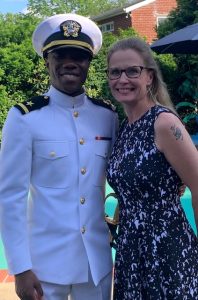
When my high school career began in 2014, my greatest fear was not being able to attend the college I wanted because my standardized test scores were too low. Up until my sophomore year of high school, I believed that the SAT was the test I had the most potential to do well on and thus invested much of my time and effort in preparatory classes to improve my scores. The results however, yielded little gain in my SAT score and as my junior year approached, I began to worry that I would never reach my goal of a competitive standardized test score.
My junior year of high school, I started attending Inn Dwelling, a program aiming to help minority students reach their maximum potential and be successful in the best colleges around the country. For several months, I came after school to get help on my homework but at some point, I was told to go upstairs to receive ACT tutoring. At first I was disappointed because the two hours I spent on Tuesday and Wednesday lessening the workload I had to deal with when I arrived at home would be cut out in order to receive tutoring for a test I hadn’t heard of and quite frankly believed I would never perform decently on. I went upstairs with low expectations and the belief that I would be wasting my time.
When I started working with Ms. Claire, I wasn’t sure what to think of the class. She seemed very serious about preparing us for the ACT and my doubts about the test itself were not a great combination at first. On my first practice test, I scored very low. I do not remember the exact scores but I do remember scoring a 19 out of 36 – a very low and uncompetitive score- in one of the sections and leaving that day feeling disappointed and hopeless.
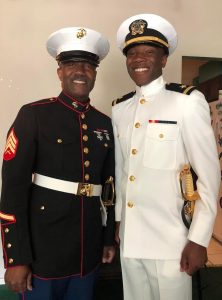
The next time my class met with Ms. Claire, she told us not to let our initial scores on the test discourage us. If we worked hard and embraced the test taking methods and strategies she would teach us, our scores could only improve. A part of me still didn’t believe her but I continued to attend the class. For each section of the test, she broke the particular section down into what it was at its core. Types of questions, statistics, formulas, definitions, and overall section format were something she deemed imperative for us to understand. It was a unique experience for me because I never knew a test could have so many underlying dynamics that could be analyzed to a test taker’s advantage. Ms. Claire told us the test was a game and the first part of learning to play the game was to learn how it works.
The first section she targeted was the English portion of the test. After learning the ins and outs of the English section, we began applying our new way of thinking about the English test to timed practice sections. At first, following Ms. Claire’s methods for the test were awkward and the results of my studying didn’t show right away. However, after taking practice English sections for weeks, carefully analyzing the questions I answered incorrectly and spending free time with Ms. Claire over Skype for long practice sessions, I started to see tremendous improvements in my score. When I took the April ACT after studying English alone, my composite was a 26 and my highest score was a 32 in English. For the first time, I felt a glimmer of hope that I could perform well on this test.
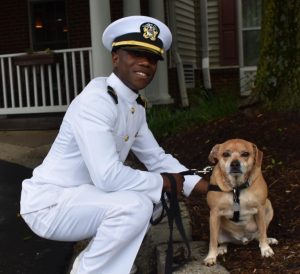
Ms. Claire continued to teach us the same approach for the Math, Reading and Science sections of the test. However, the improvements came much slower for these tests compared to English. The Science section felt like a drag. This last multiple choice portion of the test was filled with overwhelming charts and graphs and that combined with a time restriction to ponder over questions often resulted in me losing focus during the test. The Reading section was similar in that I had to read four long and sometimes confusing passages and quickly answer the questions within a very small portion of time. I even struggled with the Math section and would fall short of my desired score when I hit the last 20 questions of the test. When I took the ACT in June, my scores improved fairly well with a composite of 28 and my record scores being a 30 in reading a 26 in math and 27 in science. This fact alone contradicted my worries about progress but I still believed that I hit a barrier and wouldn’t be able to improve.
A part of my struggle had been that I wasn’t fully embracing everything Ms. Claire was asking me to do. There were many skills Ms. Claire stressed we use that I thought I could exclude from her list of test strategies and tips. Another part of the battle for me earning my desired score was mental. I often found myself being psyched out by wordy and intimidating questions that – after careful review- were much simpler than they appeared. Sometimes, just looking at the clock tick down with 5 minutes remaining and still having ten unanswered would cause me to quietly lose my focus and botch my chance to get a few extra points. With a month left before the September test, I was already making mental preparations to retake the test in October.
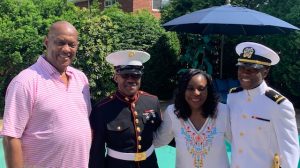
About a week or two before the test, I expressed my concern to Ms. Claire. I told her about how the test was psyching me out, about how I was getting easy problems wrong, and how I feared that I would not do well on the upcoming test. Her response was part motivational and part critique. We went over my homework and she pointed out the fact that I wasn’t using strategies and showed me where strategies would have gotten me points. That hour was spent going over math and science problems that I had gotten wrong, using strategies, and seeing how simple some would have been if I had done the work.
At the end of the class, she asked me what my goal was for the September ACT. I told her a 29. She said I needed to enter the test with confidence. I had spent the past year studying the test, learning how it is designed, and developed an understanding that most students probably hadn’t received. I needed to enter the test room with a feeling that I was going to leave with my 29 and that I was going to own the test that day. Nothing could stand in my way. She even made me a flash card to look at before I took the test. Written in bright red was a 29 and a “you can do it!” type of phrase. That was my final ACT lesson. I thanked her for all her time and hard work.
Several days before the test, she sent me a list of ways to prepare. They ranged from what to eat for energy to reviewing grammar flashcards and math formulas. I woke up on Saturday morning feeling great. I tried my hardest to push any negative thoughts from my head as I knew there would be no time for them during the test. When I arrived at the test center and sat down, I smiled. I glanced at Ms. Claire’s flash card and knew that today was going to be the day. When the test began, I followed her strategies carefully, reading carefully and moving quickly. English was not a problem. During the Math portion, I used all my strategies. When the timer indicated 5 minutes remaining, I didn’t panic even though I had eight questions left: I followed Ms. Claire’s advice and earned the most points I could. For Reading, I read quickly, skimming parts of the passage as I was taught and answering the questions using strategies. Finally, for Science, I didn’t let the overflowing pages of charts and data intimidate me. I quickly noted patterns and dug only for what the questions asked of me. After writing the essay to conclude the test, I felt mentally drained. When I left the test, I did not think I had reached my goal of a 29. When Ms. Claire asked me how I did, I only said, “I think I did well.” I had followed the strategies Ms. Claire gave me after months of pushing them to the side.
On the morning of September 19, ACT multiple choice scores were beginning to be released. I woke up at 5:30 that day to go to the gym and the air was cold and I would have preferred to be asleep. When I remembered the scores were being released that day, I logged onto my ACT account to view my scores. My heart raced silently as I braced for a score that was not a 29. The webpage loaded slowly and as I had predicted, my composite score was not a 29: I was instead greeted by a 30! I almost lost my mind sitting in the parking lot. I scored 32 on the English, a 28 on the math, a 32 on the reading, and a 27 on the science. All personal record breaking scores. I was yelling and dancing in the car seat and was just about ready to cry. I hadn’t reached my goal. I had exceeded it! All the doubt, all the worries, I put it to rest that day.
I couldn’t have obtained a 30 on the ACT without Ms. Claire. I don’t know any tutors who understand the test as well as she does. She wasn’t giving us all of those strategies and tips to waste our time. She put so much emphasis on them because they worked. When I spoke to her on the phone, I couldn’t stop thanking her for all time she spent working with me. While she knew how appreciative I was, she let me know that this victory was just as much of my doing as hers. Out of the many things I learned from Ms. Claire, what probably stuck with me the most is that I achieved what I did because I worked hard. Ms. Claire can teach us all the strategies and tips in her book but at the end of the day, I as a student must want to be better. That means putting in extra hours to work with her, doing homework and analyzing my mistakes on my free time. I wouldn’t have been able to score so well if I didn’t put in the work. If any student is willing to work hard and meet her halfway, an improved score is almost a guarantee.
I want to once again say thank you to Ms. Claire for all the time she spent helping me and my entire ACT class do well on the ACT. If someone had told me my freshman year of high school that I would be able to get a 30 out of 36 composite on the ACT, I would have probably laughed. I genuinely believed that standardized test scores would be my weak link in applying to college but after working with Ms. Claire, that is no longer an issue. I am at a loss for words in expressing how deeply appreciative I am of Ms. Claire and her work with me. Thank you.
